Diet: The Key to a Successful Hair Transplant
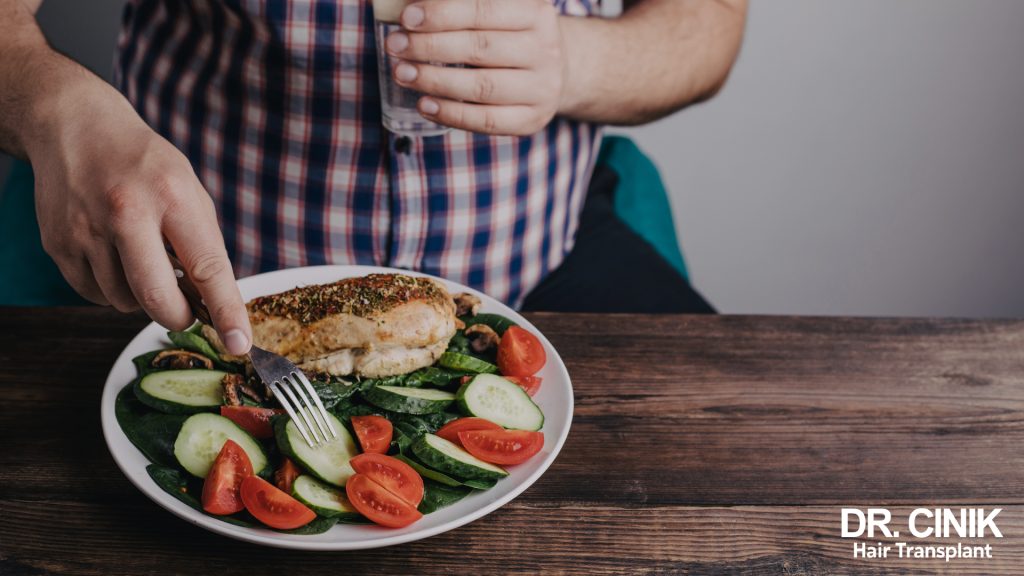
Sommaire
The success of a hair transplant is significantly influenced by nutrition. Adequate nutrition is pivotal for healing, securing the grafts within the scalp, and promoting swift hair regrowth.
The Top Foods for Hair Transplant Recovery
Lean Proteins: Meat, Fish, Eggs
Lean proteins are essential for the success of a hair transplant. They are vital for cell repair and wound healing, playing a key role in both the healing process and the stabilisation of the grafts. These proteins also provide iron, an element critical for enhancing the delivery of oxygen and nutrients to the recuperating tissues, thus aiding in a faster recovery.
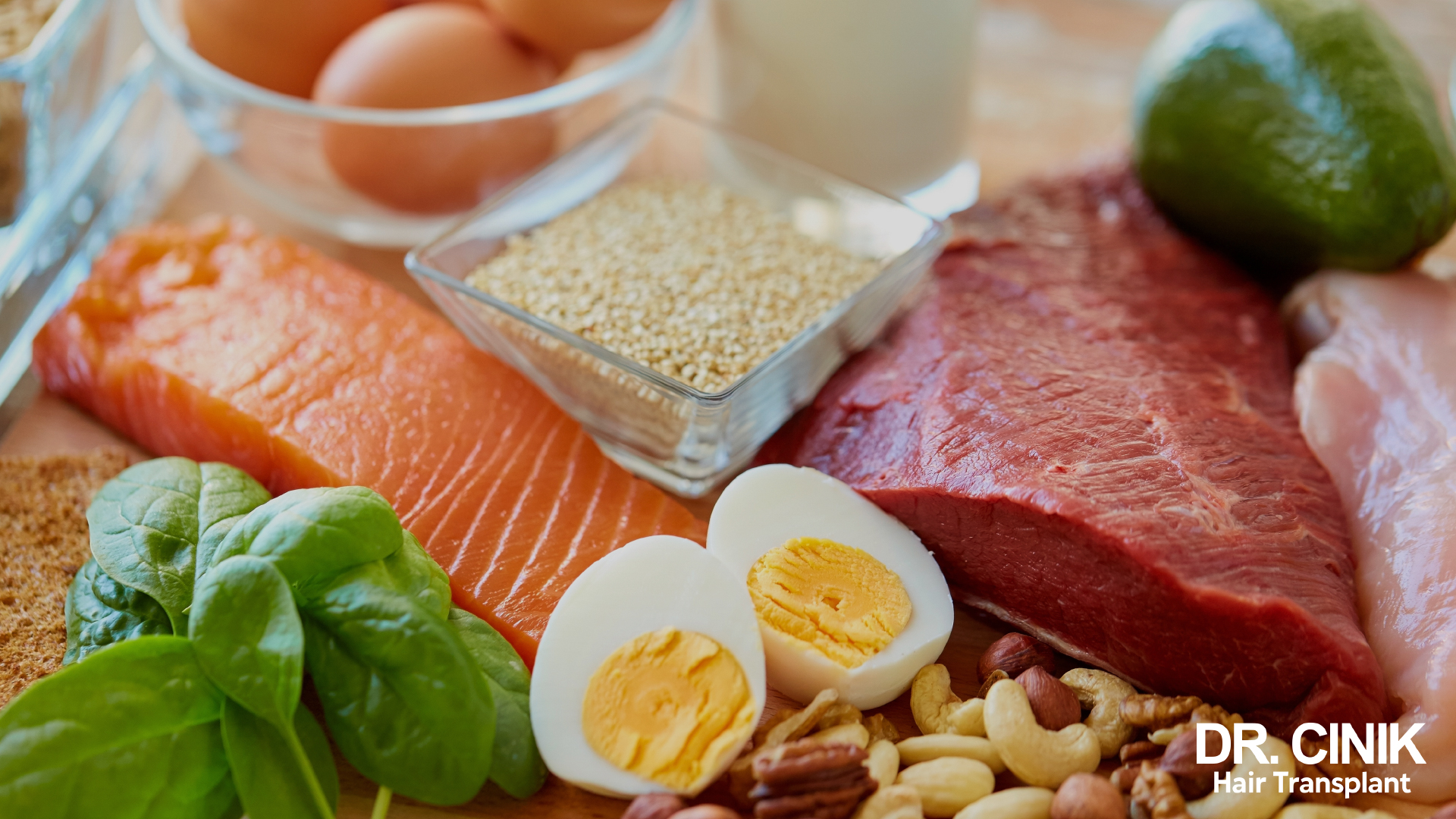
Antioxidant-Rich Fruits and Vegetables (Blueberries, Broccoli, Spinach)
Fruits and vegetables that are loaded with antioxidants play a significant role in supporting hair transplant success. Antioxidants serve the crucial task of shielding cells from oxidative stress, which is commonly associated with surgical procedures. This protection is vital for maintaining the integrity of hair grafts. Additionally, these nutrient-dense foods enhance microcirculation within the transplanted follicles, thereby facilitating their retention and subsequent growth.
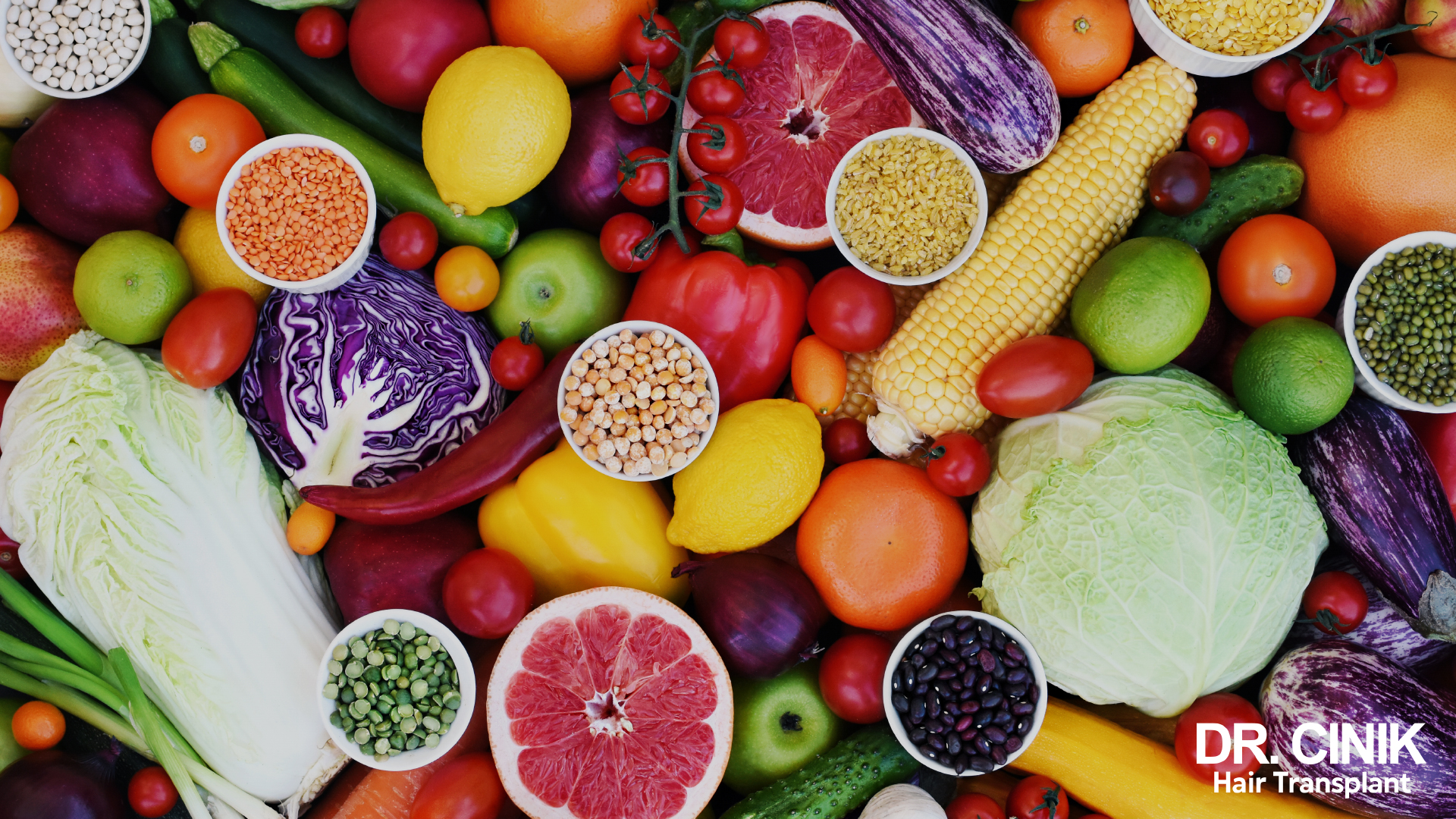
Omega-3 (Fish Oil, Linseed)
Omega-3 fatty acids, present in fish oils and linseed, play a pivotal role in diminishing post-operative inflammation. Without proper management, such inflammation has the potential to harm tissues and jeopardise the integrity of grafts. Furthermore, Omega-3s significantly boost the vascularisation of hair grafts, which is essential for the success of a transplant.
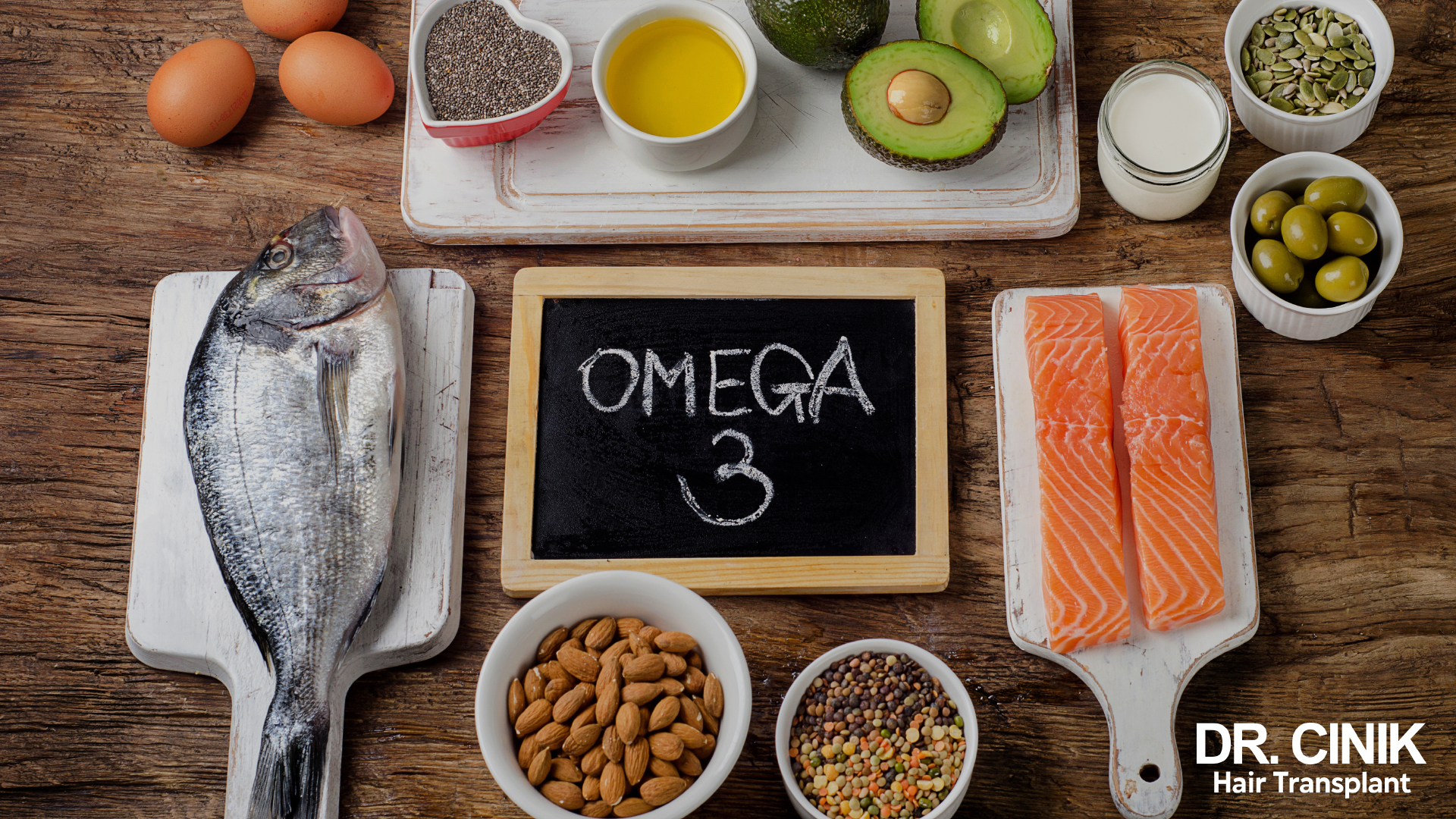
Vitamin C-rich Foods (Citrus Fruits)
Vitamin C is plentiful in citrus fruits and is critical for collagen formation, a protein that’s vital for effective wound healing. Additionally, this vitamin significantly contributes to enhancing iron absorption from our diet, which is instrumental in bolstering tissue repair and robustness.
Vitamin B-rich Foods (Green Vegetables, Meat, Eggs)
Vitamin B, prevalent in green vegetables, meat, and eggs, is key to cell division, an important aspect of hair regrowth. It also plays a role in optimising the transportation of oxygen in the bloodstream, which is essential for nourishing transplanted grafts.
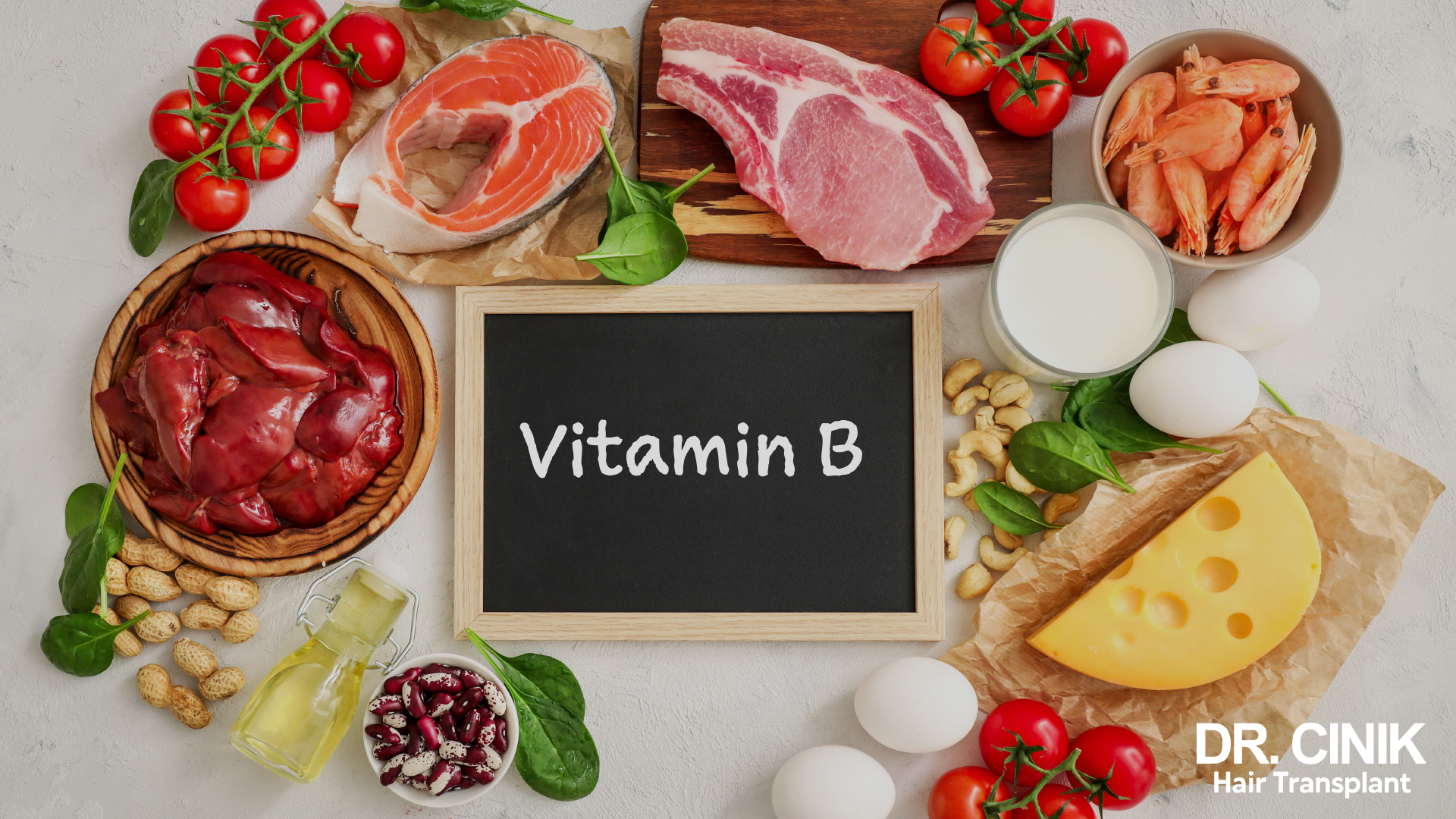
Zinc-Rich Foods: Oysters, Beef, Chicken
Zinc, abundantly found in foods like oysters, beef, and chicken, not only improves the skin’s capacity to ward off infections but also plays a significant role in the recovery of the scalp post-transplant. It supports the process of grafts taking root firmly within their new location
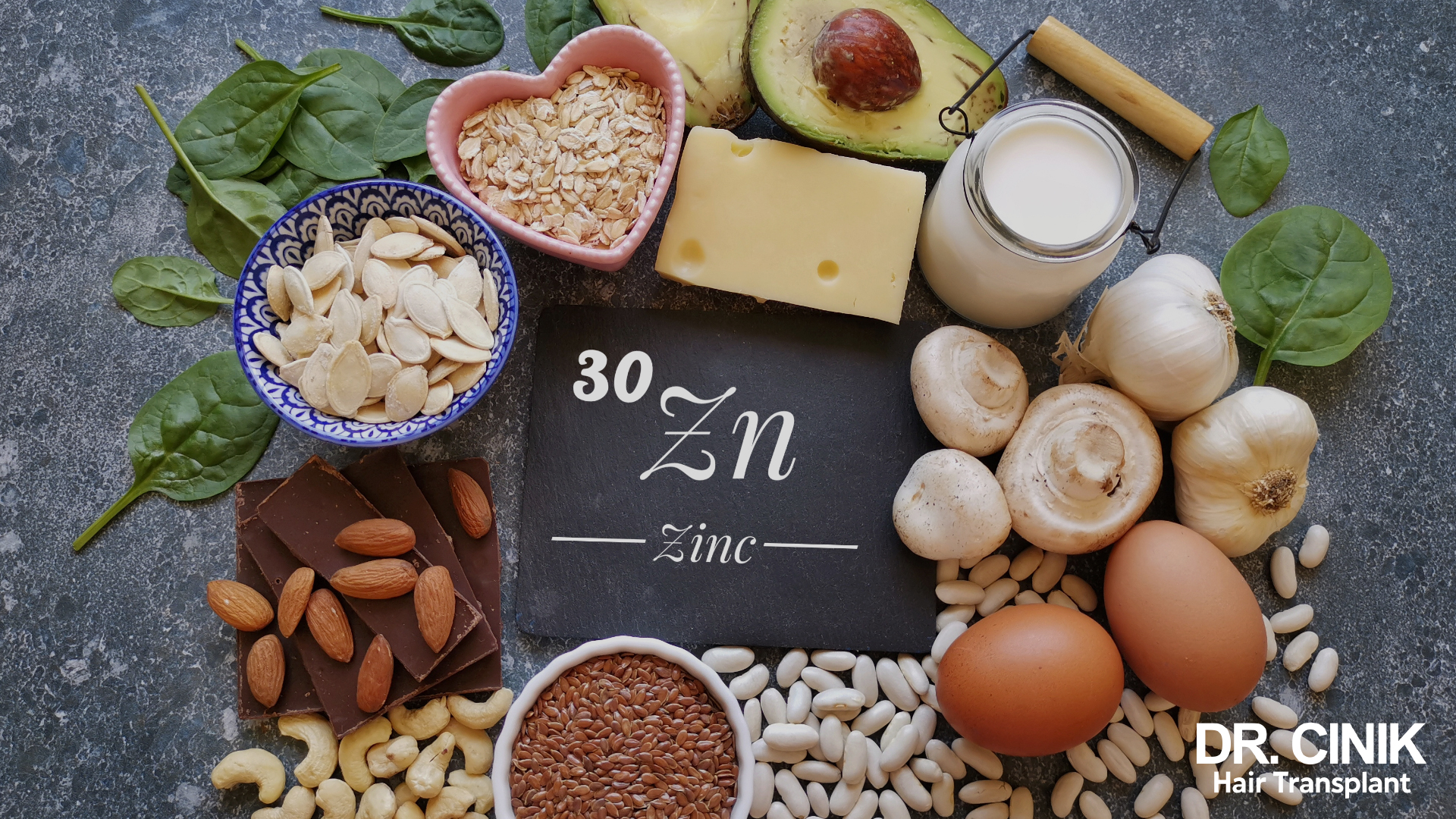
Water
Maintaining proper hydration is pivotal for promoting healing, preventing dehydration, and sustaining suitable blood pressure levels during a hospital stay. Water is a foundational element in the post-operative healing process, impacting all aspects of recovery.
Each of these nutritional components has a distinct and synergistic part to play in the preparation and success of a hair transplant. Together, they contribute to the best possible healing outcomes and the health of the scalp.
What Foods Should I Avoid During a Hair Transplant?
Alcohol
Alcohol should be avoided, especially before and after a hair transplant, as it impairs tissue oxygenation. This can lead to an increased infection risk and slow the healing process.

Animal Fats (Meat, Dairy Products)
Animal fats, found in certain meats and dairy products, are known to increase cardiovascular risks and inflammation during the recovery phase. These adverse effects can impede the healing process and detrimentally influence a patient’s overall health following a transplant.
Quick Sugars (Sodas, Sweets)
Fast sugars, prevalent in sodas and confectioneries, can compromise the immune system and the scalp’s health, leaving the patient more susceptible to infections after surgery. Moreover, they induce unwanted fluctuations in blood sugar levels, which can disrupt the metabolic balance essential for proper wound healing.
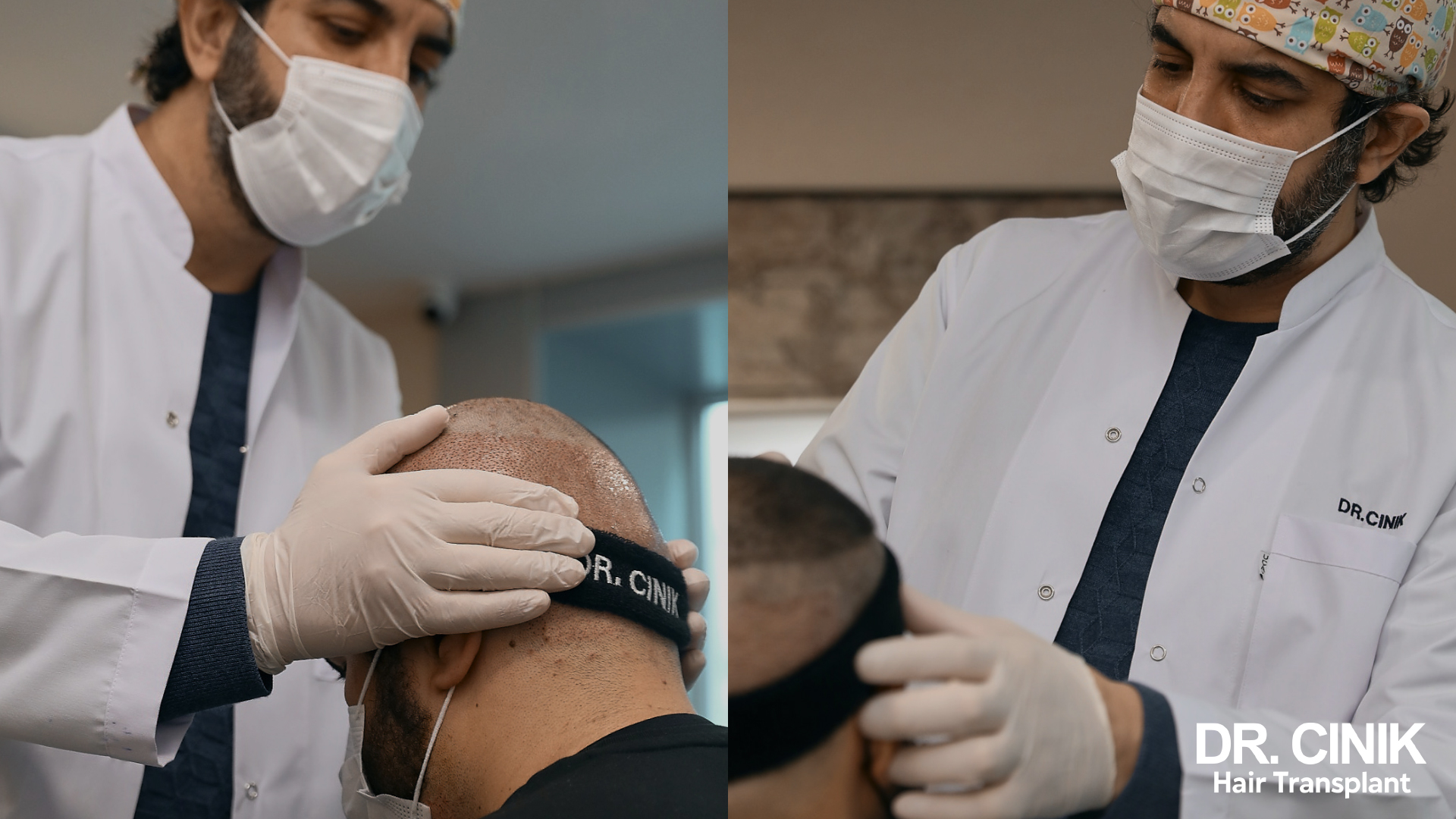
Nutritional Supplements Beneficial for Hair Transplants
Vitamin A
Vitamin A plays a vital role in promoting the growth of hair follicles and aids in improving blood flow to the scalp. It’s important, though, to keep the intake below 3000 IU daily to prevent potential weakening of the hair.
Vitamin B
A Vitamin B complex is advantageous for hair transplant recovery. Vitamin B3 enhances microcirculation in the blood, B5 helps to reduce premature hair loss, and B8 fortifies the hair’s structural integrity.
Vitamin C
Vitamin C is a potent antioxidant, combatting the free radicals produced by the stress of surgery. It’s paramount for the healing process and bolstering resistance to infection, with experts suggesting a dose of 1000 to 2000 mg per day.
Vitamin E
Vitamin E, known for its anti-inflammatory and antioxidant properties, speeds up the recovery of damaged tissues. Caution is advised as consuming more than 400 IU could heighten the risk of bleeding.
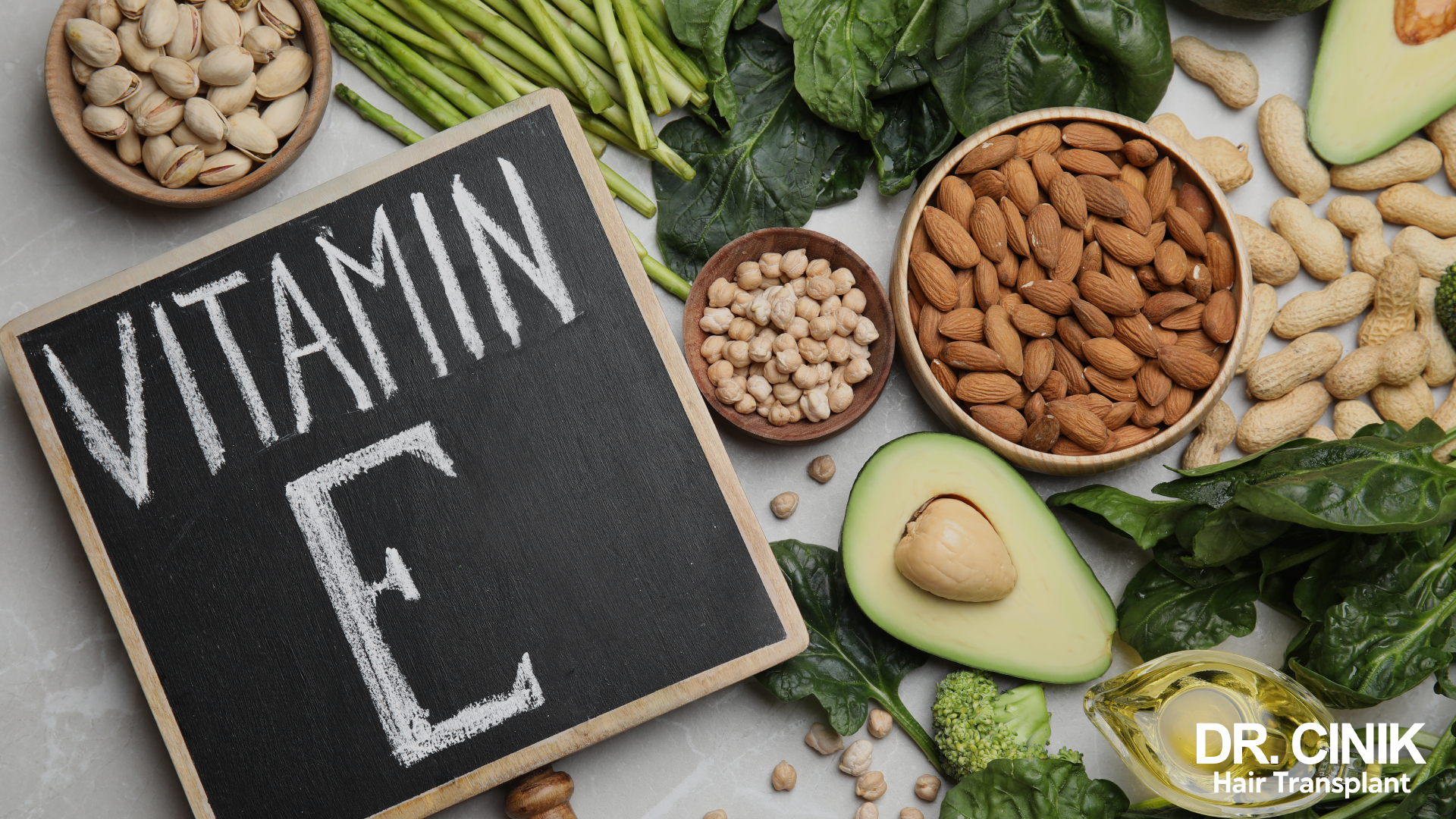
Zinc
Zinc is known to hasten the repair of damaged skin and tissues while also bolstering the immune system. A daily intake of 15 to 30 mg is advised for optimal results.
Iron
Iron is vital for oxygen transport to cells, which is crucial for their regeneration. To avoid potential iron deficiency that may lead to decreased scalp density, it is advised not to exceed the maximum daily dosage of 45 mg.
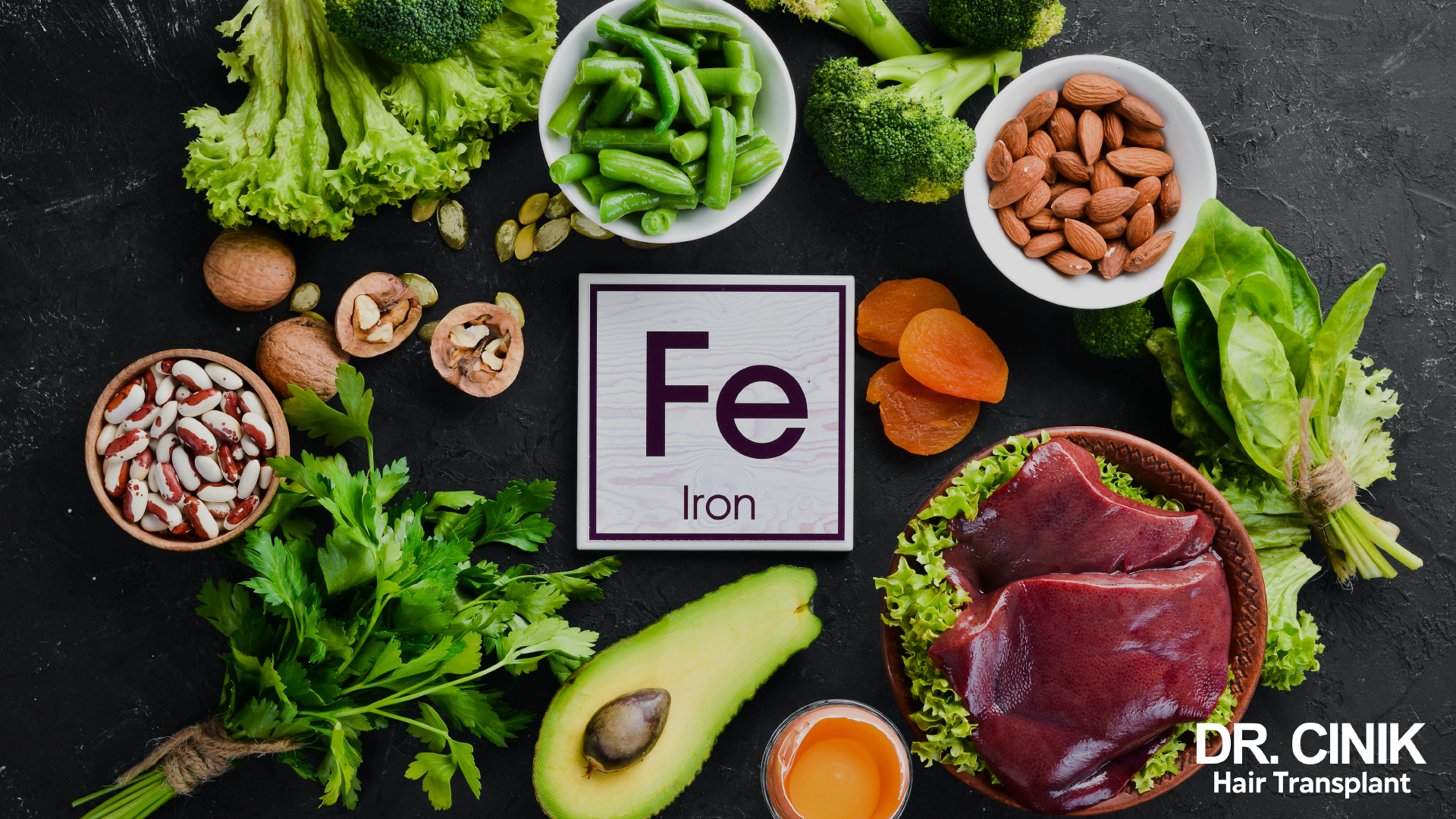
Omega-3
Their anti-inflammatory properties are greatly beneficial post-surgery, aiding in enhancing the blood flow to the transplanted grafts.
Turmeric / Ginger
These natural spices play a significant role in minimising inflammation and postoperative discomfort. They also bolster the cell’s antioxidant defence against oxidative stress.
In Case of Nutritional Deficiency
A lack of iron, B vitamins, and zinc can undermine graft survival or new hair growth. As a result, targeted supplementation is vital to rectify these shortages and guarantee the transplant’s success.
 en
en



